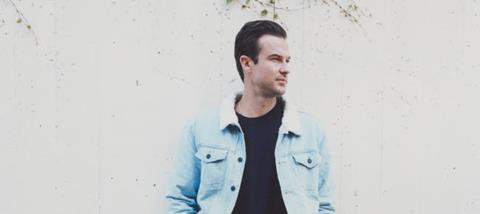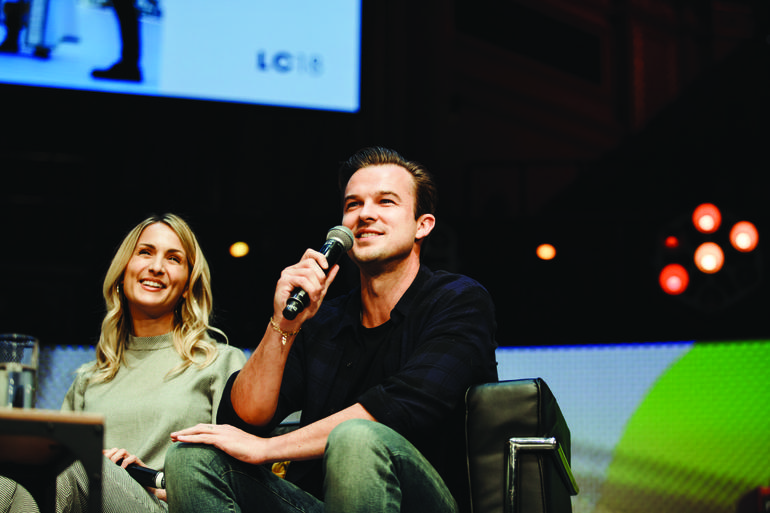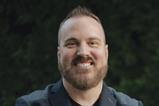Sam Hailes interviews the charismatic megachurch leader and 'pastor to the stars'

My first impressions of Rich Wilkerson Jr were somewhat mixed. Within seconds of turning up for our interview, the 34-year-old had begun livestreaming our interactions to his thousands of followers on social media. In some ways I shouldn’t have been surprised: this is the man who, earlier in the year, broadcast the birth of his son to the world via Instagram Stories.
But it wasn’t just the iPhone addiction that unsettled me. In the course of my pre-interview research, I’d discovered the American pastor had presided over Kanye West and Kim Kardashian’s wedding. While I rejoiced at the thought of a Christian pastor giving wise counsel to two of the biggest celebrities on the planet, I questioned whether Rich was communicating the good news, or just telling famous people what they wanted to hear. Glancing through video clips online of him preaching hadn’t eased my fears. Neither had the Esquire profile, which concluded: “Fun is at the heart of Pastor Rich’s message. It’s the next stage of the prosperity gospel.”
Yet, as I scratched beneath the shiny surface, I discovered the hipster pastor has substantial Christian heritage – he comes from four generations of pastors on both sides of his family. His second cousin was David Wilkerson, author of the Christian classic The Cross and the Switchblade.
The road to planting his own church appeared fairly straightforward. After graduating university and getting married, Rich and his wife, DawnCheré, arrived in Miami to work for Rich’s parents at Trinity Church. From 2007 to 2015, he led Trinity’s young adult gathering, called Rendezvous. Attendance quickly grew from twelve people to more than 1,000. While that event continues to this day, the couple now pastor their own church down the road. It’s called Vous (short for Rendezvous).
The promotional bumf I was sent about Wilkerson ahead of our interview, boasts about him clocking up nearly 3 million air miles due to speaking engagements around the world. When I met him he was fresh from addressing the Leadership Conference organised by Alpha at the Royal Albert Hall. In person, the pastor was full of energy. He had a sense of humour too. When I asked him how many people attend his church, he replied nonchalantly: “100,000 people show up every Sunday…the membership is now 2 million.” (His church is big, but not quite that big.)
As I spent time with Rich, my scepticism began to melt. He might be carefully crafting his ‘brand’ through social media, but there was also a spiritual depth to him. Unlike other high-profile American pastors, he didn’t turn up with an entourage of aides and no question was off limits. I was also surprised to hear this apparently seeker-sensitive speaker make bold statements such as: “Unless you’re living the truth of Jesus, you are living a lie.”
As we spoke at length and he addressed each of my sceptical questions with warmth, grace and wisdom, I slowly realised I’d misjudged Pastor Rich. He is a man with a heart for reaching the unreached with the gospel. Who was I to argue with that? It turns out you can’t judge a man’s ministry by sermon clips and Instagram Stories alone. I’d learned my lesson.
You come from a family of church leaders. Was there ever a pressure or expectation that you would go into the ministry?
Yes, I think there was. There was this level of – whether it was said or not – this is what our family does, they lead and they preach. I remember as a young man at times thinking: “How will I ever live up to this?”
It wasn’t until I was 17 when I really had my own encounter with God. And it was the starting point of me surrendering and submitting to, not just following Jesus, but on a bigger scale – answering the call.
I think that there’s a lot of pressure today to “do it like this guy or that guy.” We’ve just got done with the HTB Leadership Conference and if you’re not careful you can sit there and go: “Oh, I should be more like him or her.” But comparison will kill your contentment and rob you of the capacity God has put inside you.
How would you describe a typical service at Vous?
I think our church is fun; it’s a high energy place, a very, very welcoming place.
We build the church on seven core values: Jesus is our message; people are our heart; excellence is our spirit; generosity is our privilege; servant leadership is our identity; honour is our calling; passion is our pursuit. Hopefully those values become visible and evident in who we are.
You’ve spoken publicly about how you and your wife struggled to conceive for eight years. You now have a four-monthold son called Wyatt, but I’m sure there must have been moments where you were giving up hope?
Yeah, I think the best word is that it was a journey. At 25, DawnCheré found out that it was going to be very challenging to have kids. There were lots of ‘no’s. When you hear that over and over again you can start to lose your hope a little bit.
Scripture says that “hope deferred makes the heart grow sick” [Proverbs 13:12]. I think many times we misinterpret that. Many times we take out the word “hope” and we put in other words. “Me not having a baby” – deferred, makes my heart grow sick. Or “my miracle” – deferred, makes my heart grow sick. But it doesn’t say that. It says “hope deferred”.
Hope is not wishful thinking or positive thinking. Hope is theological more than psychological. Hope is the building block to my faith. Hope is a constant expectation that God is working even when I can’t sense it.
So it’s when I don’t have this expectation that God’s working, even when I can’t sense him – when I defer that, when I let go of that, when I delay that – that’s when my heart grows sick.
For us, we had to realise that the baby was not the goal. We believed for a baby, we kept proclaiming and declaring for a baby, but we came to a place where, even if we’re never going to get a baby, we have Jesus. And there was a peace and a hope that was born out of that. Even in our toughest hours I felt like there was a healthy perspective.
DawnCheré was very quiet about it even to our friends and family for the first five years. But a few years ago she was speaking at Hillsong Colour Conference in Sydney – and she just felt like she should share her story. Many times we hear the story after the breakthrough. She decided to speak from the valley. She was very careful to say that even if we don’t ever have a baby, we still have this hope in our God. We’ve got everything we need in Jesus. So when the miracle did happen, the celebration was that much louder.
When Esquire profiled you they said “fun” was at the heart of your message and suggested you adhered to the prosperity gospel. Did they have a point?
I think they were very harsh with us. I think this is probably the first time I’ve talked about it out loud. But, yeah, I think that article was surprising as I had wonderful conversations with the man writing it.
Look, people are going to make their own judgements and own calls. I think fun is awesome. So, he did get that right.
There is something about celebration that we have underestimated in the Church; and there’s something about fun and parties. But they have to have a purpose. I think if this stuff of fun just terminates in ourselves, that’s not a gospel-centric life. That’s not a Jesuscentric life. But rather when you have fun and you celebrate and you have Jesus in your mind, it rolls up into praise and adoration of him.
I think church is a family, and in my family, the doors would get shut and we would come in and have a good time, sit around the dinner table all hours telling stories and laughing really hard. It wasn’t always serious. And I think church should be like that.
You’re saying we need to lighten up sometimes?
Maybe a little bit. I’ve got to be careful as I’m over in England telling people to lighten up!
There’s a question I’ve been dying to ask you. Kanye West - the biggest rapper in the world! How did your friendship with him begin?
It began many years ago. I had a friend that was going to the Rendezvous who was friends with Kanye and he brought him to church. Afterwards, we sat in the back for a while and talked and exchanged email addresses. Then he came back to church the next week and the next week. He just kept flying in and being at church and we started a friendship.
When it came time for him to get married, he was in need of someone to do the wedding, and for some reason he felt comfortable enough for DawnCheré and I to be there. I thought it was a beautiful opportunity and a privilege for us.
My friendship with Kanye is one that I’ve really valued. I’ve learned a whole lot from him. I’ve really appreciated his perspective. I think he’s a guy that many times is very misunderstood. He’s got these brilliant ideas and I think sometimes he’s just trying to figure out how to get out all that he is thinking about. That sometimes comes out in awesome ways and other times it comes out in a misconstrued way which creates controversies and complications.
Like all of us I think he’s on the journey, but, unlike me, his journey is always through the magnifying glass of the media: everything he does, good or bad. And people comment and critique. In my time of getting to meet some high-profile celebrities I think you start to feel for them in a lot of ways. When you get close to someone, you start to see their story – and compassion comes.
How have you handled criticism from Christians about your friendship with Kanye West?
The ones that know me best have supported me and have understood. I wish I could say that [criticism] has never bothered me – but I think, you know, as I’m maturing, that’s an area that I’ve had to grow in.
It’s kind of funny, right, like the guy that we follow, the guy we’re talking about, his name is Jesus. And they killed him. Like, they didn’t tweet nasty stuff, they didn’t write bad articles in magazines, they put nails in his hands and nails in his feet, and they killed him. It’s funny I would think that I can follow that guy and not have to deal with a little bit of push-back.
I had a revelation after a really nasty article was written about me one time. I was talking to my friend and was down and discouraged. I said: “Bro, this doesn’t seem worth it. I don’t think I want it.” He said: “Are you really going to ask God to rescue you from things that you’ve prayed for your entire life?” He was right. I would lie in my room, lie at the foot of the altar at the church and pray: “God, give us influence, God give us a voice to those that don’t know the gospel. Put us in front of kings, put us in front of culture-makers and influencers.” And God does it! So you have to stand firm. I think it’s about tough skin, soft heart.
Some assume you must be compromising in some way in order to hold close relationships with well-known people. Are you able to challenge people, rather than just have easy conversations with them?
In every relationship I think that truth should come after trust. In John 1 it says Jesus came “full of grace and truth”. I love that picture. He didn’t strike a balance between the two, he’s full of both.
We live in a world today where everyone’s like: “Live your truth.” But when you follow Jesus, what it means is that when Jesus disagrees with my feelings, he’s still my truth. When Jesus goes against my friends, he’s still my truth. When Jesus doesn’t line up with my fantasies, I’m choosing his truth. I’ve died to myself.
So truth is unavoidable. But truth has to come after grace. And although there’s not a balance between the two, I do think the order matters. Grace comes first. Truth comes second. So let’s connect before we correct. I think many people who make these criticisms go: “Are you sharing the doctrines?” The doctrines don’t matter if they don’t know that you care about them. The truth is not boldness when you have no relationship.
Your new book is called Friend of Sinners: Why Jesus cares more about relationships than perfection (Thomas Nelson). Did you write this to justify your relationship with Kanye West?
It’s funny you said that. I was telling a friend of mine, who is on the faith journey, that I was writing a book called Friend of Sinners. And he said: “Bro, you cannot do that! All your friends are going to be so mad at you!” I started to laugh. I said: “Ah, you think I’m the ‘friend’ in the title? No, no, bro; I’m the sinner in the title.”
It’s not written because of Kanye West, it’s just written because…this is a cry for all of us to be reminded of our brokenness, fragility and depravity. Without Jesus, we’re all sick. The good news is that he came for sick people, of which I am the chief among them.
Out of that salvation moment, and after meeting him and walking in relationship with him, we too have this heart to go and love people where they are. We too become friends of sinners.
To hear the full interview listen to Premier Christian Radio at 4pm on Saturday 7 July or download The Profile podcast






































